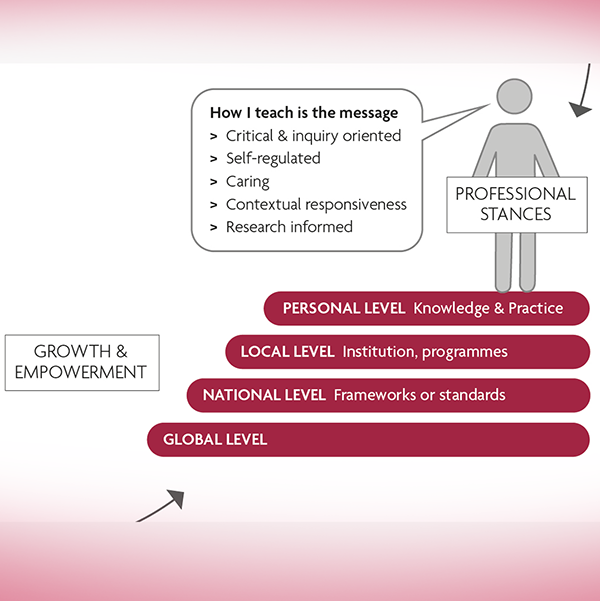Identifying School-Based Teacher Educators’ Professional Learning Needs: An International Survey

Sleeping Beauty and the future of (teacher) education
August 28, 2023
Teacher’s Profession is (Still) Attractive in Finland
December 13, 2023Identifying School-Based Teacher Educators’ Professional Learning Needs: An International Survey

“The presumption that, if you can teach young people in schools you can therefore also teach adults how to teach and how to teach more effectively, is one that has permeated many teacher education systems and policies.” – Parker, Zenkov, and Glaser, 2021
There has been little research evidence of commensurate and dedicated professional learning opportunities for school-based teacher educators (SBTEs) (specifically related to their role as teacher educators). This blog post, and the article on which it is based, addresses this lack of evidence by presenting findings from the largest international survey (n = 1680), to date, on SBTEs’ professional learning needs. The study, carried out by the International Forum for Teacher Educator Development (InFo-TED), builds on an earlier international study (Czerniawski, MacPhail & Guberman, 2017) that focused on the professional learning needs of higher education-based teacher educators. The participants were from 12 countries (Australia; Austria; Belgium; England; France; Ireland; Israel; Norway; Portugal; Romania; Scotland; and The Netherlands) associated with InFo-TED. These participants included teachers who self-identified as SBTEs and included teachers who mentor student teachers, interns and early-career teachers, as well as teachers who lead and facilitate their colleagues’ professional learning.
School-based teacher educators – a lack of recognition
The Donaldson report, a review of teacher education in Scotland, states that ‘all teachers should see themselves as teacher educators and be trained in mentoring’ (Donaldson, 2011, p. 94). And yet, despite this policy attention, many SBTEs are often not recognised as teacher educators by those who work with (e.g. other teachers; teaching assistants; senior leadership) and do not identify as teacher educators (Livingstone, 2014). The latter observation is particularly consequential as it suggests an important shift in identity, practices, and pedagogical expertise has yet to emerge. However, increasing attention from both academics and policy makers is being given to the complexity in this identity work and its implications for professional learning (Cochran-Smith et al., 2020; White & Timmermans, 2021). The presumption that, if you can teach young people in schools you can therefore also teach adults how to teach and how to teach more effectively, is one that has permeated many teacher education systems and policies (Parker, Zenkov, and Glaser, 2021). This assumption is, perhaps, one explanatory factor for why, until relatively recently, few formal professional learning opportunities have existed for SBTEs and, where such opportunities exist, they vary in quality and relevance (Childre & Van Rie, 2015).
Empirical evidence – plugging the gap
Even within national borders, differences within the constellations and patterns of professional relationships ensure the experience of being a SBTE varies considerably for different individuals even within broadly similar contexts and settings (Czerniawski, Kidd, & Murray, 2019). This study provides empirical evidence of the need for much wider recognition and professional learning support for SBTEs in their different jurisdictions at a time when many countries are increasingly developing their own school-based models of teacher education as part of a wider international practice or practicum-turn. While the study’s findings reveal that most SBTEs receive some form of preparation for their role, they require that preparation to be more collaborative and target the pedagogic and research related aspects of their work. The findings also indicate just how much more needs to be done to recognise, address and support SBTEs learning needs in relation to the rapidly changing socio economic cultural and technological contexts that underpin the work of all teacher educators.
References
Childre, A. L., & Van Rie, G. L. (2015). Mentor Teacher Training: A Hybrid Model to Promote Partnering in Candidate Development. Rural Special Education Quarterly, 34(1), 10–16.
Cochran-Smith, M., Grudnoff, L., Orland-Barak, L., & Smith, K. (2020). Educating Teacher Educators: International Perspectives. The New Educator, 16(1), 5–24.
Czerniawski, G., MacPhail, A., & Guberman, A. (2017). The Professional Development Needs of Higher Education-Based Teacher Educators: An International Comparative Needs Analysis. European Journal of Teacher Education, 40(1), 127–140.
Donaldson, G. (2011). Teaching Scotland’s Future: A Report of the Review of Teacher Education in Scotland. Edinburgh: Scottish Government.
Izadinia, M. (2014). Teacher Educators’ Identity: A Review of the Literature. European Journal of Teacher Education, 37(4), 426–441.
Livingstone, K. (2014). Teacher Educators: Hidden Professionals? European Journal of Education 49(2), 218–232.
Parker, A. K., Zenkov, K., & Glaser, H. (2021). Preparing School-Based Teacher Educators: Mentor teachers’ Perceptions of Mentoring and Mentor Training. Peabody Journal of Education, 96(1), 65–75.
White, E., & Timmermans, M. (2021). The Teacher Educator’s Handbook – a Narrative Approach to Professional Learning. St Albans, London: Critical Publishing.




